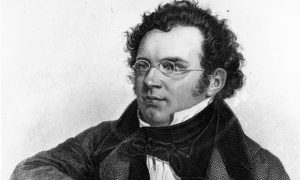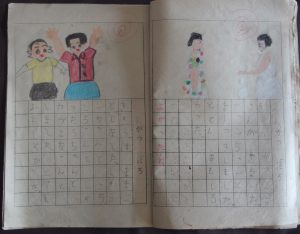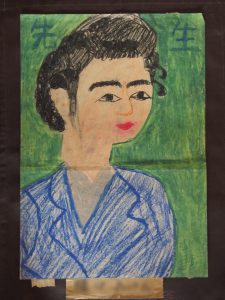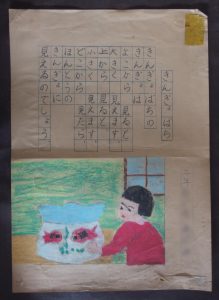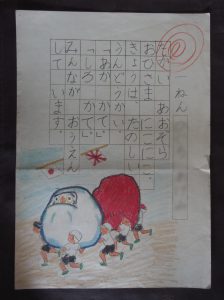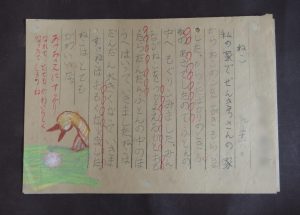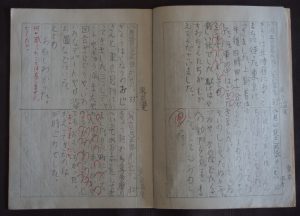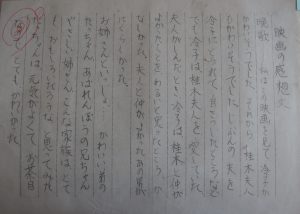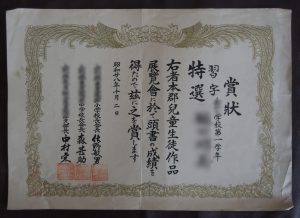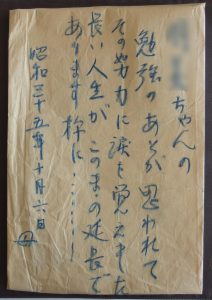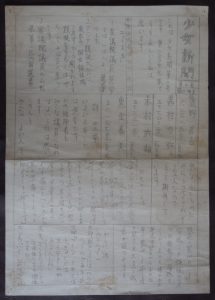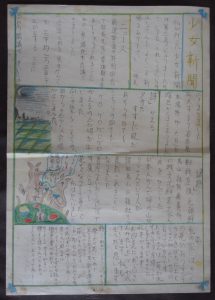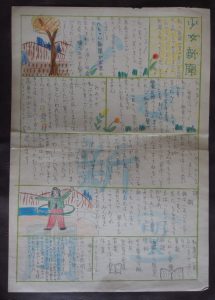「てんこうせいはワニだった!」
とある雑誌に掲載されている書評の「よそうがいだ・・・」の表現が、Mari がよろこびそうなフレーズだったので、Amazon で注文してプレゼントした。1日経ったけど、読んだのかどうか不明。実は私が一番読みたい!!
ある日、ぼくのクラスに転校生がやってきた。なんとびっくり、ぶったまげーたー、アリゲーター!転校生はワニだった!
鉛筆を持てずにすねちゃったり、給食をおぼんごと食べちゃったり…。
一筋縄ではいかないワニくんとの一日は大騒動の連続。でもなんだかとっても楽しいんだ。


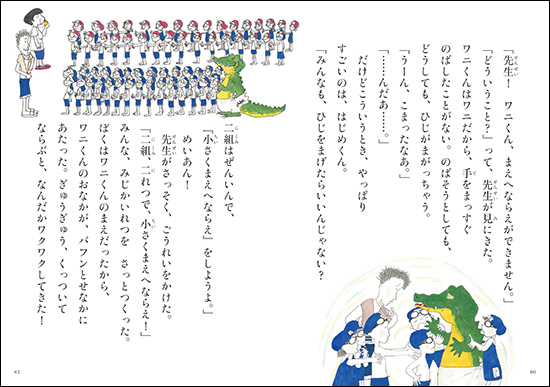
物語は「ぶったまげーたーありげーたー」から始まるギャグ?も、小学校低学年の子供心を鷲掴みにするには十分です。主人公はオースケ君という小学1年生の男の子ですが、なぜか同じクラスにワニが転校してきます。しかもなぜか隣りの席になってしまいました。
言葉も何もわからないワニが、一年生の教室で暴れまくります。いろいろ失敗もしますが、最後は得意の水泳でみんなに認められ、徐々に打ち解けていくのです。ワニが不器用ながらも、だんだんと人間らしく成長していくのも見どころの一つです。
感想が届いたら載せよう。
from Mari: ごめんメールすんのわすれた!「てんこうせいは、ワニだった」
<↑音声のサイト>
Kazuo Ishiguro, his Speech in Stockholm (2)
11/11(月)未明、Nobel Academy のサイトで授賞式の模様を食い入るように見ていた。
Kazuo Ishiguroさんは、身体とたたずまいは日本人、言語と身体の動きはHalf British/Half Japanese のような感じで、穏やかでにこやかな表情で、楽しそうに嬉しそうに賞を受けた。喜ばしい瞬間だった。
でも、その前に平和賞を受賞した ICAN (International Campaign to Abolish Nuclear Weapons) のベアトリス事務局長(Beatrice Fihn)のスピーチが超過激、直截的・感動的で驚きだった。日本人被爆者Thurlow節子さんのスピーチも力強く、会場に感動を広げた。世界に声を拡げるものだったと思う(拍手) スピーチ原稿(こちら)

The Sveriges Riksbank Prize in Economic Sciences in Memory of Alfred Nobel 2017 
Richard H. ThalerさんPhoto: University of Chicago/Anne Ryan
もう一つ、おかしみとともに感動したのは、経済学賞を受けた米国の受章者が舞台で思わず見せた涙。正直そうで可愛らしく、VTRを戻して何度も見てしまった。どの受章者も人生をかけた挑戦を長年たゆみなく続けた人で、それだけで十分人を感動させるのだと思った。
こちらは、受賞後の夕食会でのIshiguroさんのすばらしいスピーチ:
Kazuo Ishiguro – Banquet Speech
Kazuo Ishiguro, his Speech in Stockholm, 2017
いよいよNobel Weekが近づいてきた。一番の楽しみはKazuo Ishiguroさんが何を話すか。日本人ではないけれど日本で生まれ、それを懐かしみ、日本にルーツがあることを誇りにする人。
Decent Manの見本のような人。
スウェーデンに到着し、ストックホルムで講演を行ったときの模様を伝える新聞記事を保存。
Kazuo Ishiguro ‘very touched’ by Japanese reaction to Nobel Win
DEC 7, 2017 JIJI, KYODO
LONDON – British author Kazuo Ishiguro, winner of the 2017 Nobel Prize in literature, said Wednesday he was happy to learn that people in Japan celebrated his recognition.
Ishiguro was born in Nagasaki in 1954 and moved at age 5 to Britain, where he still lives and writes in English.Read More →
Kazuo Ishiguro さんにノーベル文学賞
海外の作家でこの頃一番読んだ(読んでいる)のは、カズオ・イシグロさん。その人がノーベル文学賞受賞者となった。すばらしい。
読んだのは(途中までのも多いけど);
・遠い山なみの光(1982年) 英・王立文学協会賞 A Pale View of Hills
・日の名残(なご)り(1989年) 英・ブッカー賞 (映画を観ただけ)
・わたしたちが孤児だったころ(2000年) When We were Orphans
・わたしを離さないで(2005年) NEVER LET ME GO
・忘れられた巨人(2015年) A Bruied Giant
ノーベル文学賞にカズオ・イシグロ氏 英国の小説家
下司佳代子=ストックホルム、編集委員・吉村千彰
2017年10月5日20時29分
スウェーデン・アカデミーは5日、2017年のノーベル文学賞を長崎出身の英国の小説家、カズオ・イシグロさん(62)に授与すると発表した。賞金は900万スウェーデンクローナ(約1億2500万円)。授賞式は12月10日にストックホルムである。
発表の瞬間、会場の報道陣から驚きの声が漏れ、拍手が続いた。授賞理由は「人と世界のつながりという幻想の下に口を開けた暗い深淵(しんえん)を、感情豊かにうったえる作品群で暴いてきた」とされた。アカデミーのサラ・ダニウス事務局長は「ジェーン・オースティンとフランツ・カフカをまぜるとカズオ・イシグロになる。そこにマルセル・プルーストを少し加えなければいけない。彼は非常に誠実な作家で、彼自身の美学の宇宙を作り上げた」とたたえた。
“This is a very weird time in the world, we’ve sort of lost faith in our political system, we’ve lost faith in our leaders, we’re not quite sure of our values, and I just hope that my winning the Nobel prize contributes something that engenders good will and peace,” he said. “ It reminds us of how international the world is, and we all have to contribute things from our different corners of the world.Read More →
YCU Library Card
仕事を始めてから4年も経って、ふとしたきっかけで「教員・職員”等”用」の図書館カードを獲得(!)しました。
これがあれば、学生の試験やその他で利用制限がある「市民用」よりもMightyでしかも無料。早速仕事で必要な法律の本1冊ほか、次の2冊を借りてきました。書架をささっと見渡しただけでも、読みたい本がいっぱい!!やっぱり図書館はいいなぁと・・・。
こちらは、友人が翻訳した最新刊(買いました。)
“Why the song cycle speaks to the heart?”
この2~3年、YCUエクステンション講座で「ドイツ語で学ぶ音楽(だったかな?)」を楽しく聴講している。その中で改めて知ったのがシューベルトの(シラーやゲーテなどの)詩の解釈の深さ、時代とともに生きた当時の音楽家の生涯、楽曲そのもの美しさ・豊かさ、それを演奏する演奏家の個性など。 興味は尽きない。
The Guardianの10/7記事には私の好きなSchubert, Dietrich Fischer-Dieskau, Gerald Moore, Ian Bostridge, David Bowie, Winterreise, Die Schöne Müllerinなどの言葉がちりばめられている。読むしかない!
From Schubert to Sinatra: why the song cycle speaks to the heart
A new English version of Die Schöne Müllerin offers a reminder as to why it’s Sinatra – not his classical contemporaries – that matches Schubert in ambition
Romantic journeys … Franz Schubert (1820). Photograph: Rischgitz/Getty Images
Christopher Fox
Friday 7 October 201615.00 BSTLast modified on Saturday 8 October 201600.00 BST
It’s an everyday story of country folk. You’re walking beside a stream when you come across a water mill. It’s a family-run business and the miller’s daughter is a lovely girl. You fall in love with her, and perhaps she does with you. But a huntsman turns up, steals her heart and breaks yours. The End.
With an update or two – the mill becomes an organic farm perhaps, the huntsman a gamekeeper – it could almost be an Archers plot, but in 1823 the Viennese composer Franz Schubert made it the subject of a set of 20 songs, Die Schöne Müllerin (The Lovely Miller-Girl). Schubert had found the poems the previous year, part of a newly published volume of poetry by his near-contemporaryWilhelm Müller, and he immediately started to compose settings for them; they were published in 1824. Three years later, Schubert wrote a second set of songs to Müller’s poetry, Winterreise (Winter Journey), and with these two works he launched a new genre, the song cycle.
Ian Bostridge on singing Schubert’s Winterreise – an indispensable work of art
Read more
Die Schöne Müllerin and Winterreise quickly found admirers. In 1829, the year after Schubert’s untimely death (he was only 31), Josef von Spaun wrote that “whatever filled the poet’s breast Schubert faithfully represented and transfigured in each of his songs, as none has done before him”. For nearly 200 years, these song cycles have fascinated musicians and audiences alike, inspiring countless performances and hundreds of recordings, as well as a vast repertoire of songs that try to match the clarity of Schubert’s word setting. Like Wordsworth and Coleridge in their Lyrical Ballads, Schubert was on a Romantic quest in search of a more informal mode of expression; instead of the elaborate diction of 18th‑century verse and music, this new voice could speak directly to the heart. The short stanzas and simple rhyme-schemes of Müller’s poems have this folk-like quality, and Schubert’s settings allow us to hear every word.
Or rather, they allow German-speaking audiences to hear every word. One of the problems confronting any singer of this music is a decision about how to communicate it: if your listeners don’t understand the language, how can you share the meaning of the words? You might print them on a screen or in a programme book, but then you lose part of your audience’s attention. Or you might sing a version of the music in which the words have been translated. This used to be the way it was done in England. Foreign music, whether Bach cantatas, Mozart operas or Schubert songs, was sung to words that the locals could understand.
 |
German baritone Dietrich Fischer-Dieskau with pianist Gerald Moore. Photograph: Erich Auerbach/Getty Images |
But in Die Schöne Müllerin the songs are born out of a uniquely intimate connection between language and music: to translate them is surely to lose an essential part of the work’s identity. To hear Schubert properly, convention dictates, we must hear it in German. Why then is the Wigmore Hall – the London headquarters of classical song – presenting the song cycle in English, as The Beautiful Maid of the Mill? The pianist Christopher Glynn, who commissioned this new translation from Jeremy Sams for the Ryedale festival, explains: “There were three motivations. First, I think the songs are stories and should be experienced as such – and a foreign language can be a barrier to singers and audience alike. t saddens me that song is on the margins of even the classical music world – a niche within a niche – and I wanted to do something to bring these cycles to a wider audience.Thirdly, I came across the wonderful YouTube clip of Harry Plunkett Greene singing “Der Leiermann”, the last song from Winterreise. It’s a haunting performance – all the more so for being in English. I was interested to look back to a time where the importance of communicating directly and clearly with your audience was more important for a singer than the notion of being absolutely faithful to the original version of a work (authenticity instead of Authenticity)”.
Fischer-Dieskau’s 1951 recording of Die Schöne Müllerin with Moore remains one of the finest ever made of this cycle
Sams is the ideal choice. Not only is he a composer and writer, he is also the son of Eric Sams, the great scholar of the German lieder tradition that grew out of Schubert’s work. As he told the Ryedale festival audience, his father had warned him, “Never translate lieder. Opera is fine – those are stories. But lieder are poetry and should not be touched.” Perhaps with this parental guidance in mind, Sams’ translations are freer than any of their predecessors. Rather than making a word for word substitution, he has created a new poetry that matches idiomatic English to the sense of Müller’s words and the rhythms of Schubert’s music.
Listeners familiar with Die Schöne Müllerin will notice this from the very beginning. In the first poem Müller repeats a key word in each of the five stanzas: “wandern” (wandering) in the first and last, other words in the intervening stanzas. But in Sams, just one word, “somewhere”, recurs in each stanza, pulling the song together even more tightly. It’s bold – more Sondheim than Müller perhaps – but that’s how Sams sees Müller anyway. For him, these poems are “bold, intense, driven. Very modern in their depictions of mental disturbance. InDie Schöne Müllerin the protagonist is a restless dreamer, maybe a fantasist (how real is his relationship with the Miller’s daughter?). He veers between self-doubt and excessive outbursts of self-justification.”
That modernity is there throughout Die Schöne Müllerin. An everyday story may gradually emerge as song follows song, but it’s a peculiar kind of story-telling. Because the narrator is also a protagonist, we see everything through his eyes, aPeep Show view of the world. It’s also because of this intensely subjective perspective that it’s impossible to dramatise Schubert’s song cycles – there’s not enough action to fill a stage or screen. Instead the cues provided by the shifts in tone and mood in his music enable our imaginations to jump the gaps from scene to scene.

|
Frank Sinatra at the new Capitol Records studio B, in Hollywood, 1956. Photograph: Frank Sinatra Enterprises |
Perhaps it’s because of these peculiarities – a tale told in a series of fleeting vignettes by a narrator who, as Sams suggests, may be a fantasist – that there are so few successors to Die Schöne Müllerin. The other great song cycle composer of the 19th century was Robert Schumann, whose Dichterliebe and Frauenliebe und Leben follow the Schubertian model, but after Schumann most composers have been less ambitious. There are wonderful sets of songs by Brahms, Mendelssohn and Wolf, but none is bound to a single narrative. Their ambition may also have been tempered by their publishers’ sense of the market: singers want to be able to make their own selections, programming songs to show off their particular vocal qualities, and even Die Schöne Müllerin had to wait until 1856 for a first complete public performance.
In the 1950s the invention of the long-playing record format created new possibilities. Die Schöne Müllerin fits perfectly on the two sides of an LP and Dietrich Fischer-Dieskau’s 1951 recording with the pianist Gerald Moore remains one of the finest ever made. But the new medium inspired few song cycles from classical composers that have anything like the ambition of Schubert; instead it is the series of LPs that Frank Sinatra made for Capitol Records in the 1950s that comes closest. Nelson Riddle’s arrangements give each album a composerly coherence and the selection of songs allows Sinatra to inhabit a different character for each record: the upbeat charmer of Songs for Swingin’ Lovers!, the world-weary romantic of Only the Lonely.
 |
David Bowie on his Ziggy Stardust/Aladdin Sane tour in London, 1973. Photograph: Michael Putland/Getty Images
|
In 1967 the Times music critic William Mann wrote of the Beatles’ Sgt Pepper’s Lonely Hearts Club Band that it had “a certain shape and integrity new to pop song LPs, which are usually unconnected anthologies. Sooner or later some group will take the next logical step and produce an LP that is a pop song cycle, a Tin Pan Alley Dichterliebe.” Five decades later, Mann’s prediction is still unfulfilled. In pop songs the singer may, like the singer of Die Schöne Müllerin, be cast as the principal character in a brief drama, but it’s their drama. Pop musicians rarely inhabit other personae – why should they when it’s their own persona that fascinates their fans? – and even the extraordinary David Bowie was only briefly able to sustain the alter egos who observe the dystopian landscapes of Aladdin Sane and Diamond Dogs.
So perhaps the legacy of Die Schöne Müllerin, composed when Schubert had been diagnosed with syphilis, lies only in the songs themselves and the fragmentary story they tell. In 1824 he wrote to a friend: “imagine a man whose health will never be right again; Imagine a man, I say, whose most brilliant hopes have come to nothing, to whom the joy of love and friendship have nothing to offer but pain. I may well sing every day now, for each night, I go to bed hoping never to wake again, and each morning only tells me of yesterday’s grief.” As Sams says, Müller’s poetry “spoke directly to a great composer’s broken heart and became his voice”; it’s a voice that speaks as directly as ever.
- The song cycle series begins at the Wigmore Hall, London W1U, on 12 October. Toby Spence and Christopher Glynn performThe Beautiful Maid of the Mill on 23 October. wigmore-hall.org.uk
子どもの頃の思い出 (母が残したもの)
☆
母の詩 ::::: ねがい:::::: (少女新聞より) 1955年ごろ
樫の木は高いなあ- 足もとに大きな黒い影を落して こんなにしっかり 地球にまたがっては こわい物なんかないだろうなあ 木陰はずい分涼しいなあ- 音もない風なのに そよ、そよ、そよ、とかずかな梢まで 樫の木の葉がゆれているよ
たくましくそしてやさしい 樫の木の様な人になれたら どんなにいゝだろうなあ-
2021/3/15 どこかから出てきた昔の絵をここへちょっと















